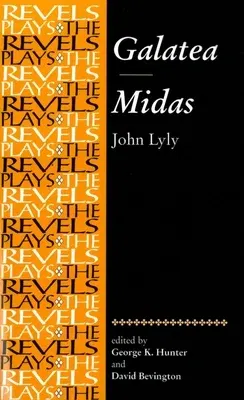Galatea: Midas: John LylyPaperback, 1 May 2008

Qty
1
Turbo
Ships in 2 - 3 days
In Stock
Free Delivery
Cash on Delivery
15 Days
Free Returns
Secure Checkout

Part of Series
Revels Plays
Part of Series
Revels Plays (Paperback)
Part of Series
Revels Plays Mup
Print Length
304 pages
Language
English
Publisher
Manchester University Press
Date Published
1 May 2008
ISBN-10
071907827X
ISBN-13
9780719078279
Description
Product Details
Book Format:
Paperback
Country of Origin:
US
Date Published:
1 May 2008
Dimensions:
21.59 x
13.97 x
2.03 cm
ISBN-10:
071907827X
ISBN-13:
9780719078279
Language:
English
Location:
Manchester
Pages:
304
Publisher:
Weight:
362.87 gm